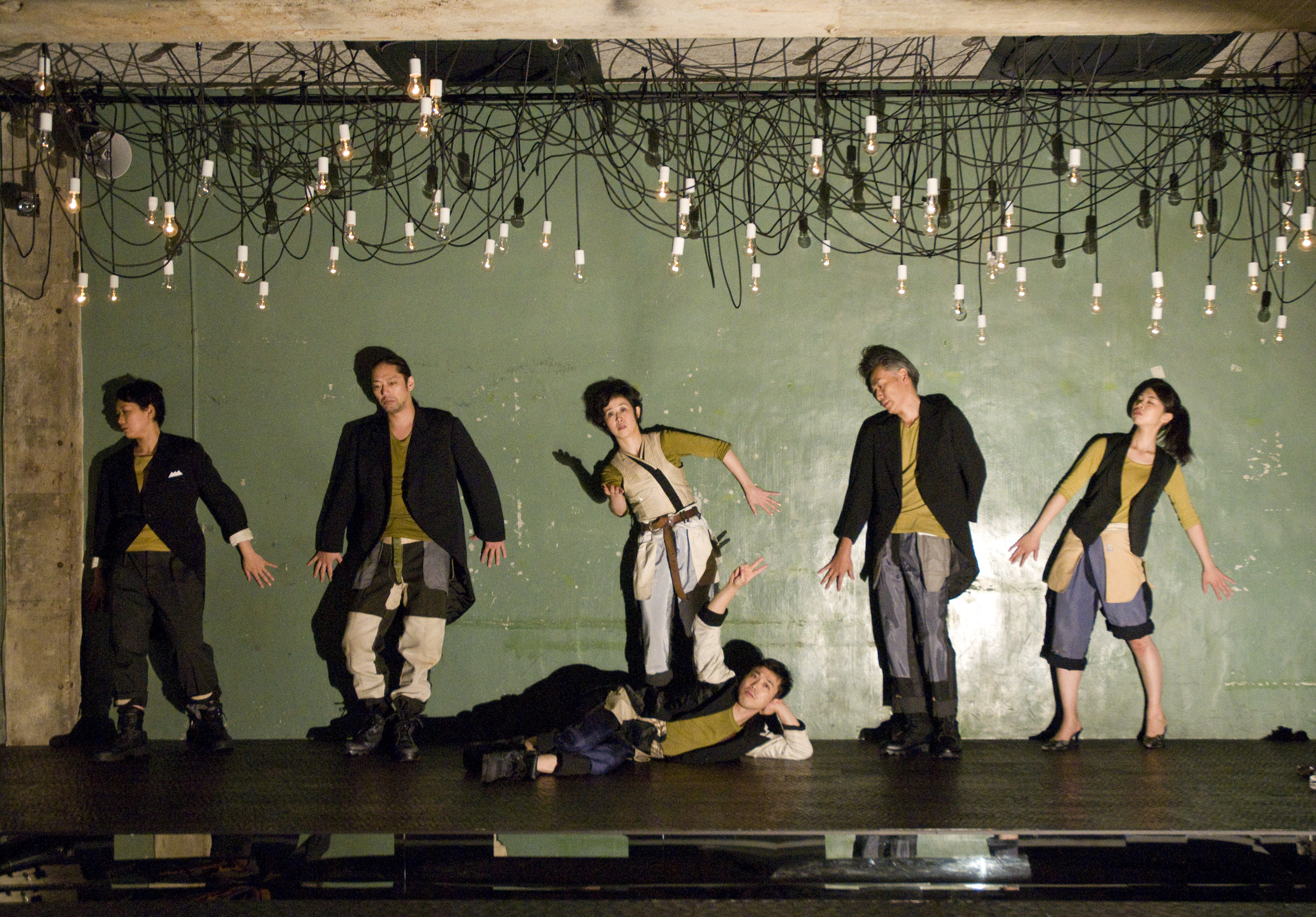The term "metatheater" refers to devices in a play that break the so-called "fourth wall" — the illusion of theatrical reality — in order to involve the audience as critical participants in the production. Metatheatricality is a hallmark of early 20th-century Modernist drama, and is often associated with the work of German playwright Bertolt Brecht.
An example of Brecht's metatheater can be seen right now at Underthrow in Kyoto's northeastern Kita-Shirakawa district — since July the intimate 30-seat underground home of the Chiten theater company, where once others grooved when it was a famous music spot called CBGB.
Its director, 40-year-old Motoi Miura, founded Chiten in 2003 in Tokyo, but since moving the company to Kyoto two years later it has been getting attention for its radical linguistic treatment of classic plays; breaking the texts into fragments and experimenting with vocal inflections and rhythms that challenge the very foundation of meaning in discourse.



















With your current subscription plan you can comment on stories. However, before writing your first comment, please create a display name in the Profile section of your subscriber account page.